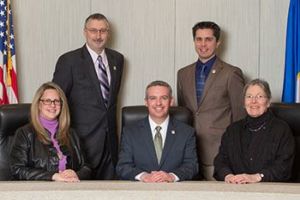Is Roseville Effectively the Twin Cities First Sanctuary Suburb?
Is Roseville the Twin Cities first sanctuary suburb? That was the goal behind a months long behind-the-scenes campaign by liberal activists to pressure Roseville City Council members into taking action. The Roseville-Little Canada Review and other media outlets were poised to report the big news recently.
The Roseville City Council passed a resolution at its Aug. 28 meeting stating that city police officers shall not inquire about a person’s immigration status unless it’s directly related to a criminal investigation.
But in reality, the Roseville City Council essentially voted to rubber stamp what police in the St. Paul suburb had been doing for years.
It was already Roseville Police Department policy that officers do not ask about immigration status, in order to foster trust between the community and police, but now the policy can only be changed by a council vote.
A divided Roseville City Council deadlocked on and failed to pass a so-called “separation ordinance” officially conferring the sanctuary city status sought by activists. In fact, the process was largely a months-long exercise in redundancy, according to City Manager Pat Trudgeon.
“If we take any additional action such as declaring Roseville a sanctuary city or adopting a separation ordinance, it will not result in any measurable difference in how the City of Roseville currently treats its residents and visitors or how it interacts with them,” Trudgeon said.
“While the status may garner a lot of publicity it will have a limited practical effect on the city’s actions or procedures, since we have a very limited role in immigration policy and enforcement.”
City Councilor Jason Ette argued sanctuary city status can do more harm than good for some illegal immigrants.
Leaning on a comment he’d received from an immigration attorney, Etten said, “Declaring a separation ordinance sends a false message of safety.”
“We can’t make people safe,” he said, “we can’t change the federal policy that isn’t ours.”
But City Councilor Tammy McGehee, a sanctuary city supporter, called it a missed opportunity.
“I don’t think that having a separation ordinance makes everyone feel like they’re safe here and everything’s going to be fine,” she said. “We’re not morons and neither are these other people.”
Despite the city’s limited power to affect federal immigration policy, McGehee said it could still make a strong statement with a separation ordinance.
“That doesn’t mean we have to turn our back on those members of our community that are suffering during these terrible times of hate.”
In the end, it may be largely about semantics. Roseville P.D. policy precludes officers from inquiring about an individual’s immigration status up to the point where “it is directly related to a criminal investigation.”
